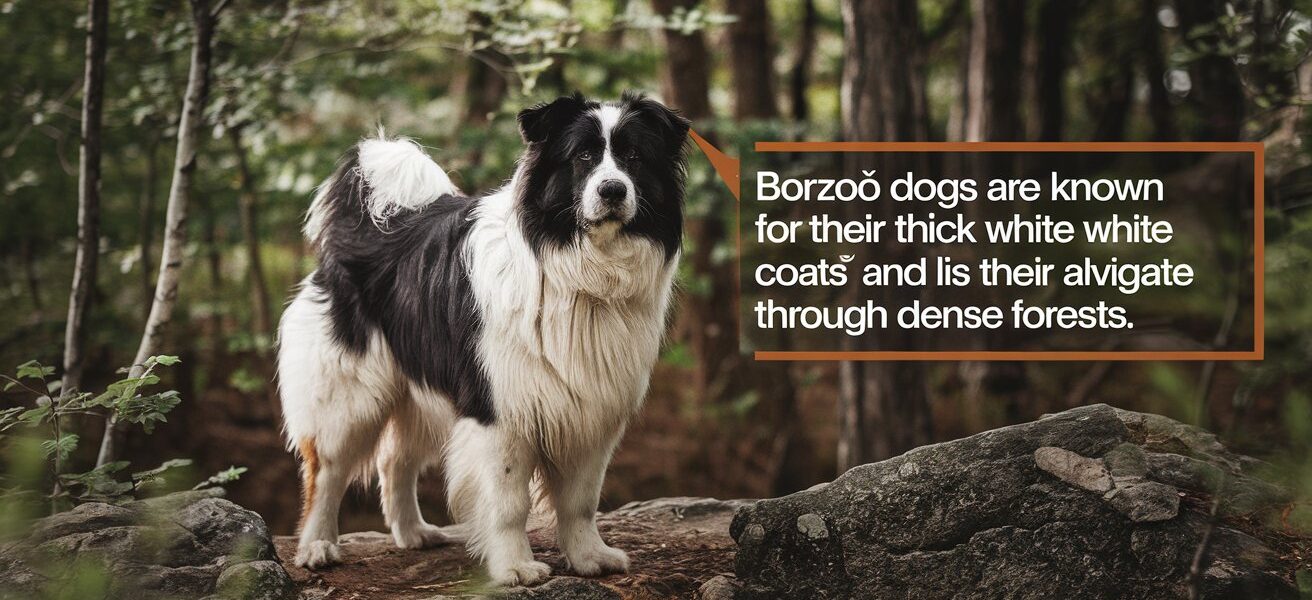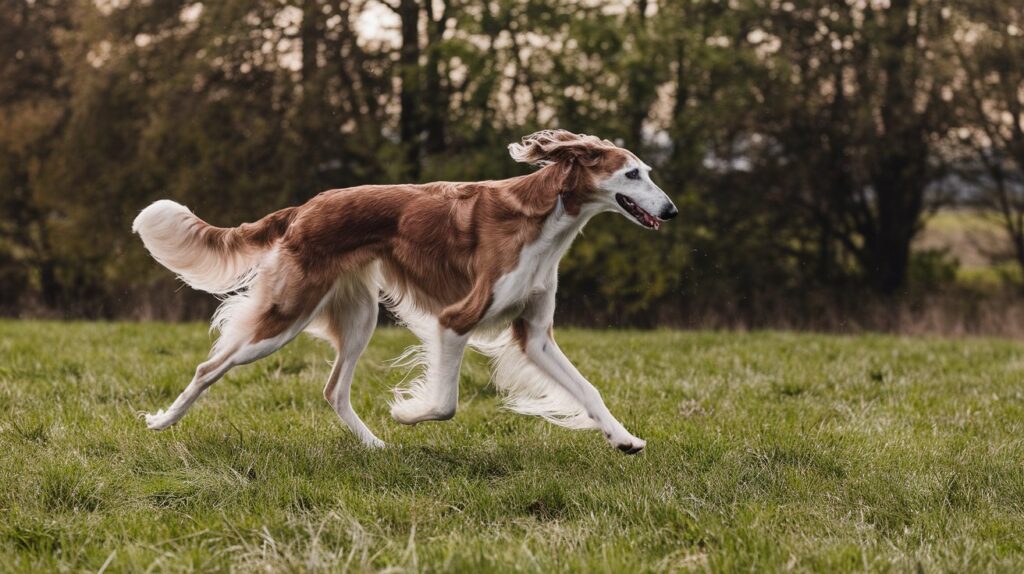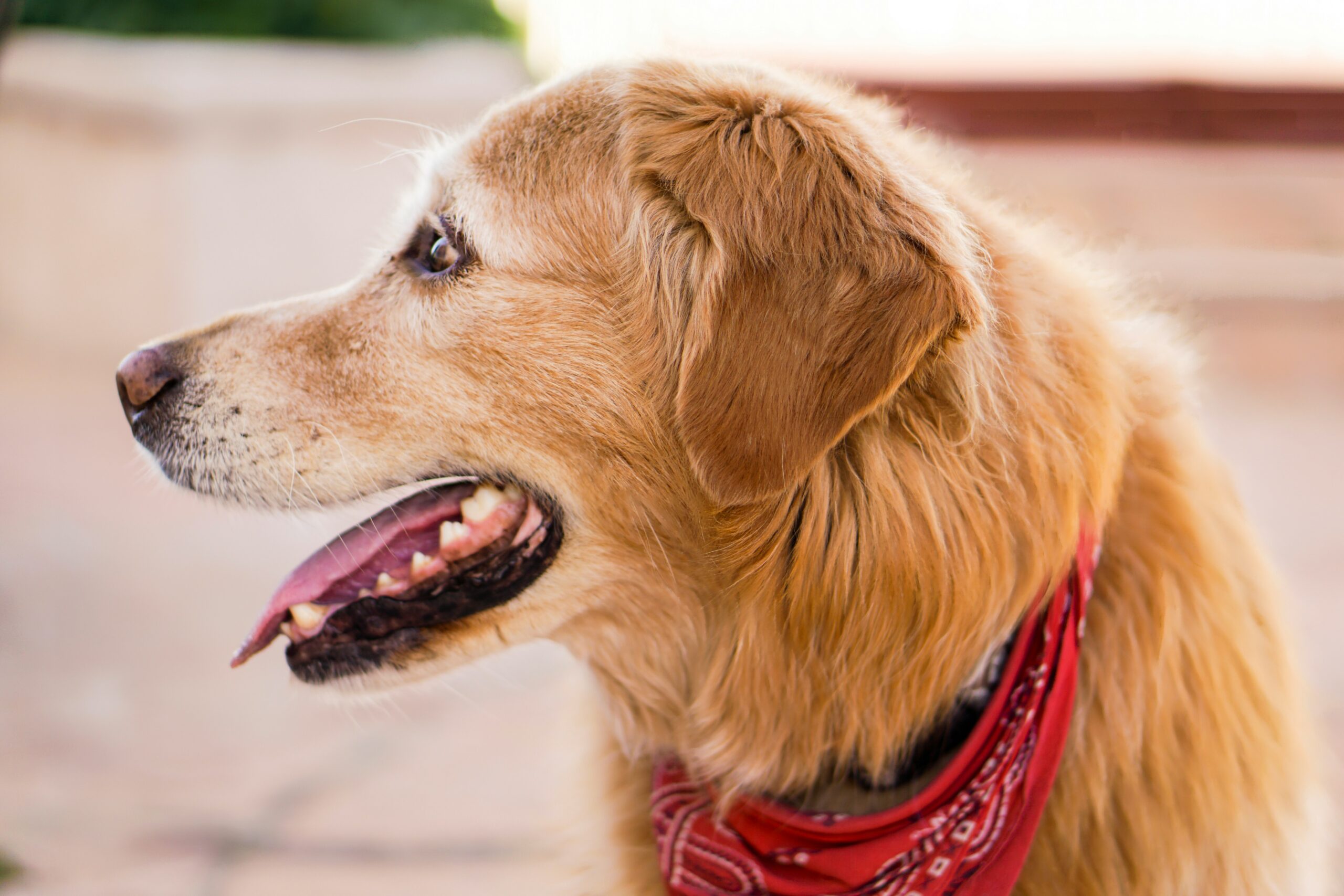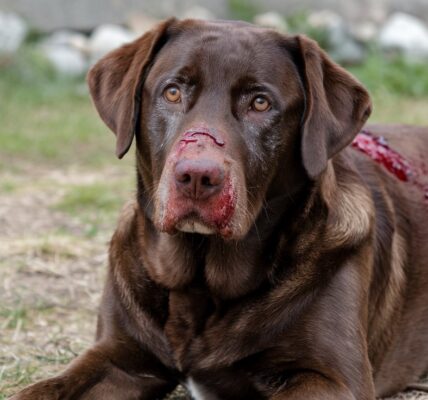The Borzoï: Why Borzois Are the Elite of Dog Breeds
The Borzoi, also known as the Russian Wolfhound, is a breed recognized for its majestic appearance, swift running ability, and noble history. With its sleek, long body and gentle temperament, this breed captures the hearts of dog enthusiasts worldwide. The Borzoi is not only a companion but also a symbol of elegance and grace.
Origin and History of the Borzoi
The Borzoi breed has deep roots in Russian aristocracy, having been bred by Russian nobles for hunting purposes in the vast Russian countryside. The breed’s origins can be traced back to the 17th century when it was primarily used for hunting wolves, foxes, and hares. These swift and powerful dogs could chase down game across rough terrain, using their speed and stamina to outpace their prey.
The name “Borzoi” is derived from the Russian word “borzoi,” meaning swift, an apt description for these fast-moving dogs. For centuries, Borzois were treasured by the Russian nobility and were often given as gifts to royalty across Europe. In the late 19th century, the breed made its way to England and the United States, quickly gaining popularity due to its unique appearance and hunting prowess.
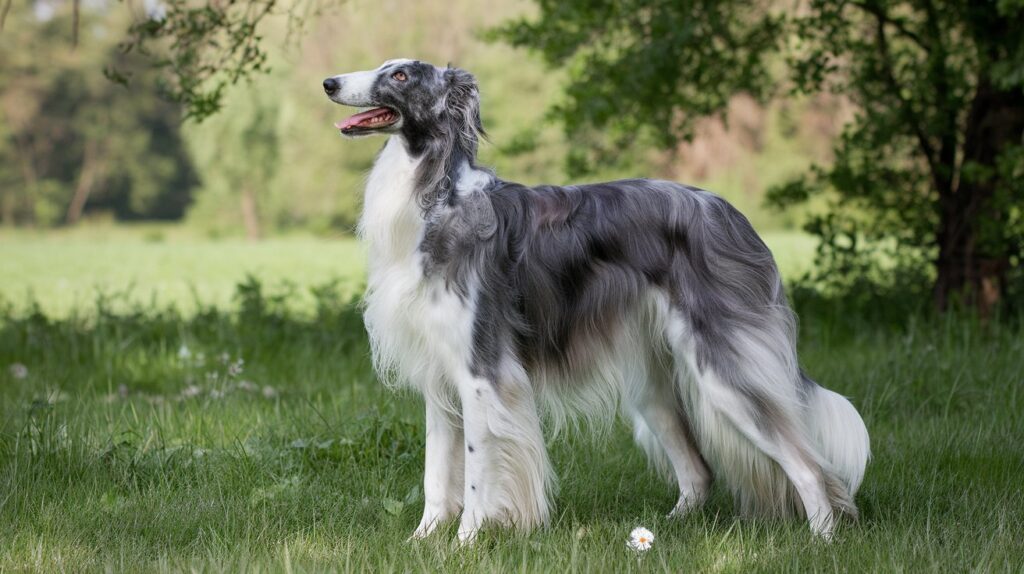
Physical Characteristics of the Borzoi
The Borzoi is a large and muscular dog breed, known for its elongated body, narrow face, and long legs. Standing between 26 to 32 inches tall at the shoulder, the Borzoi is built for speed, with a streamlined body that allows it to move gracefully at high speeds.
Key Physical Features:
Head:
The Borzoi has a long, narrow head with a slightly convex profile. Its ears are small and lay back against the neck, though they can perk up when the dog is alert.
Eyes:
Their dark, almond-shaped eyes give them an intelligent and soulful expression. These eyes contribute to their sharp, keen sight, which is essential for hunting.
Coat:
The Borzoi has a silky, wavy coat that is either flat or slightly curled. The coat protects against harsh weather, particularly in cold climates. Coat colors vary, including white, black, brindle, and a combination of these.
Body:
Borzois have a long, curved body that allows them to run at impressive speeds. Their long legs and flexible spine enable them to take large strides, making them highly efficient runners.
Tail:
Their tail is long and curved, further emphasizing their graceful silhouette.
Temperament and Personality of the Borzoi
Despite their history as fierce hunters, Borzois are known for their calm and gentle temperament. They are often described as quiet, reserved, and affectionate with their families. Borzois are generally independent dogs, but they enjoy spending time with their human companions. They have a strong sense of loyalty and can be very affectionate with those they trust.
Key Traits:
Calm and Dignified:
Borzois are not hyperactive or overly energetic dogs. They tend to be more laid-back and prefer a peaceful environment. They are well-suited to a quiet home where they can relax and lounge for most of the day.
Independent but Loyal:
While they enjoy human companionship, Borzois also have an independent streak. They don’t require constant attention but will show affection to their loved ones.
Reserved Around Strangers:
Borzois are naturally reserved, especially around strangers. However, they are not aggressive and tend to keep their distance rather than react aggressively in unfamiliar situations.
High Prey Drive:
Due to their hunting background, Borzois have a strong prey drive. This means they may be tempted to chase small animals such as squirrels, rabbits, or even cats. Early training and socialization can help manage this instinct.
Exercise and Training Needs of the Borzoi
Although Borzois are relatively calm indoors, they require regular exercise to stay healthy and fit. Their heritage as hunting dogs means they need space to run and release energy. Ideally, they should have access to a secure yard or be taken to areas where they can run safely off-leash.
Exercise Tips:
Daily Walks:
Borzois benefits from at least 30 to 60 minutes of daily exercise. This can include a long walk or jog, but they also need the opportunity to stretch their legs and run.
Off-Leash Running:
Whenever possible, Borzois should be allowed to run off-leash in a safe, enclosed area. Their need to run is deeply ingrained in their DNA, and they enjoy sprinting at full speed.
Mental Stimulation:
Due to their intelligence, Borzois can become bored if left without mental challenges.
Training the Borzoi
Training a Borzoi can be both a rewarding and challenging experience. They are intelligent dogs but can be somewhat stubborn due to their independent nature.
Training Tips:
Start Early:
Early socialization and training are crucial for Borzois. Introduce them to different environments, people, and other animals while they are still puppies to ensure they grow up well-adjusted.
Positive Reinforcement:
Borzois responds best to positive reinforcement methods. Use treats, praise, and play as rewards during training sessions.
Short Training Sessions:
Borzois can become easily bored with repetitive tasks. Keep training sessions short, around 10 to 15 minutes, and focus on keeping them engaged.
Health Considerations for the Borzoi
Being a large breed, they are at risk for conditions such as hip dysplasia and bloat. It’s essential to be aware of these potential health concerns and take preventative measures to ensure your Borzoi remains healthy.
Common Health Issues:
Bloat (Gastric Dilatation-Volvulus):
Large, deep-chested dogs like Borzois are at higher risk for bloat. This life-threatening condition requires immediate veterinary care, so it’s important to be aware of the symptoms and take precautions during feeding.
Hip Dysplasia:
Heart Conditions:
Some Borzois may be prone to certain heart issues, such as cardiomyopathy. Regular vet visits and monitoring can help detect any early signs.
Is the Borzoi Right for You?
Owning a Borzoi can be a rewarding experience for those who appreciate its unique combination of grace, intelligence, and loyalty. However, the breed’s independent nature, high prey drive, and exercise needs may not make it suitable for everyone. If you have the time, space, and dedication to meet the needs of this elegant breed, the Borzoi can be an excellent companion.
FAQs:
- Why are Borzois so rare?
Borzois are rare due to their specific care needs, size, and the fact that they’re less popular than other breeds, making them harder to find. - Are Borzois aggressive?
No, Borzois are generally not aggressive. They are known for being calm and gentle, though they can be aloof with strangers. - How much is a Borzoi?
A Borzoi can cost anywhere from $1,500 to $5,000, depending on the breeder, pedigree, and location. -
Why are Borzois good at killing wolves?
Borzois are good at hunting wolves due to their speed, strength, and agility, paired with their ability to chase and catch prey across vast distances.

Jahanzaib Kaleem is a passionate and knowledgeable pet writer and veterinarian dedicated to enhancing the well-being of pets and educating pet owners around the world. With years of experience in veterinary medicine and a deep love for animals, Jahanzaib combines his medical expertise with a flair for writing to deliver insightful and practical advice on pet care.

